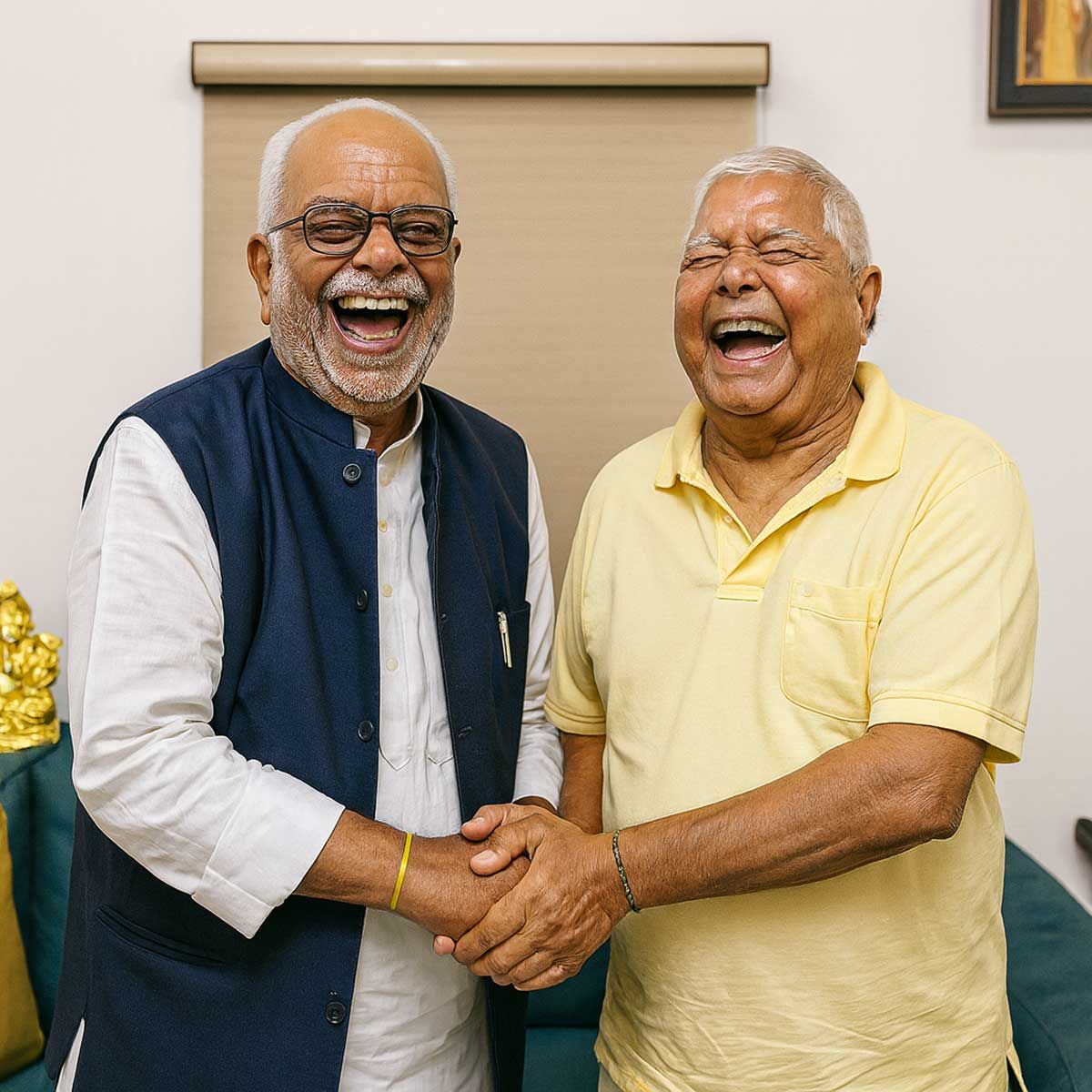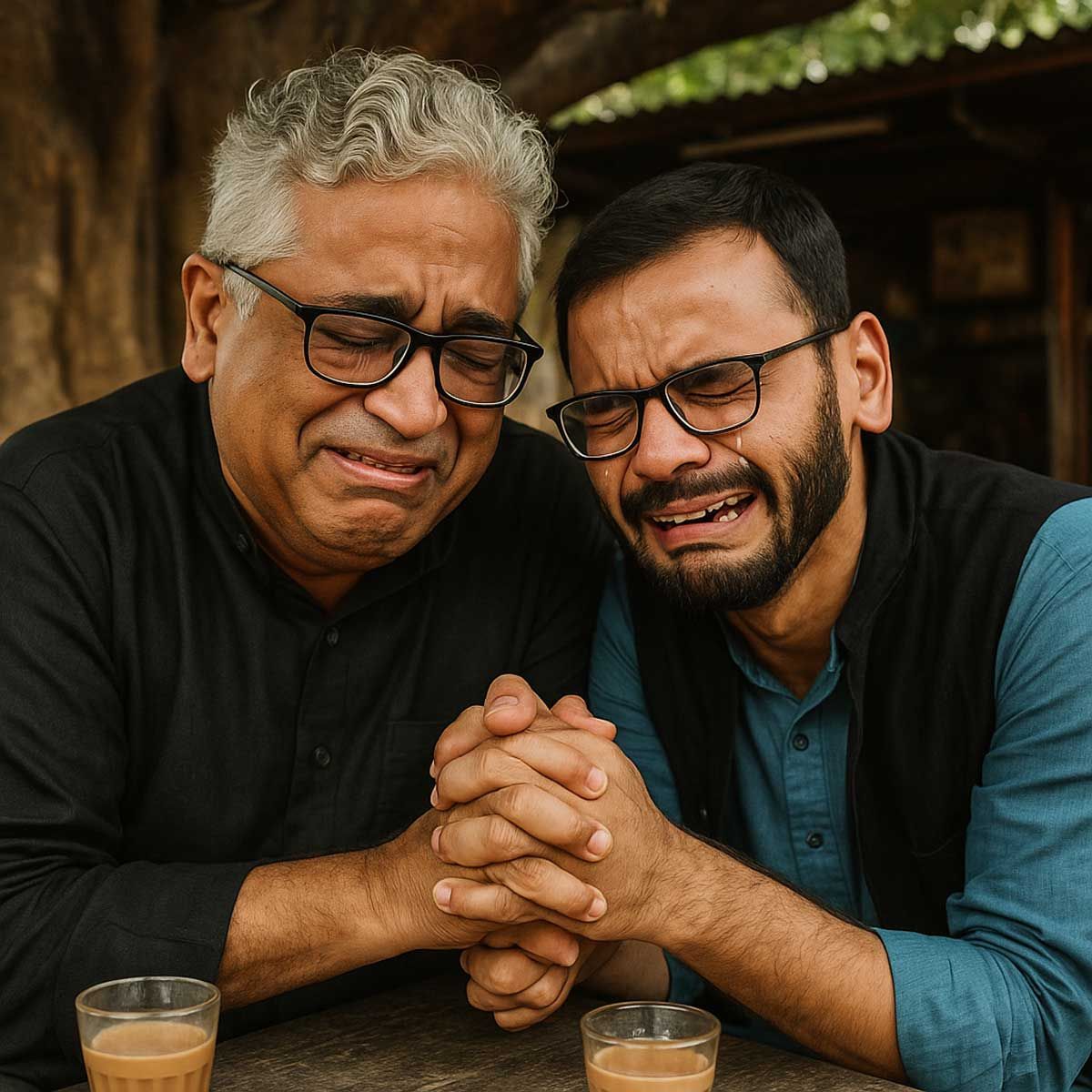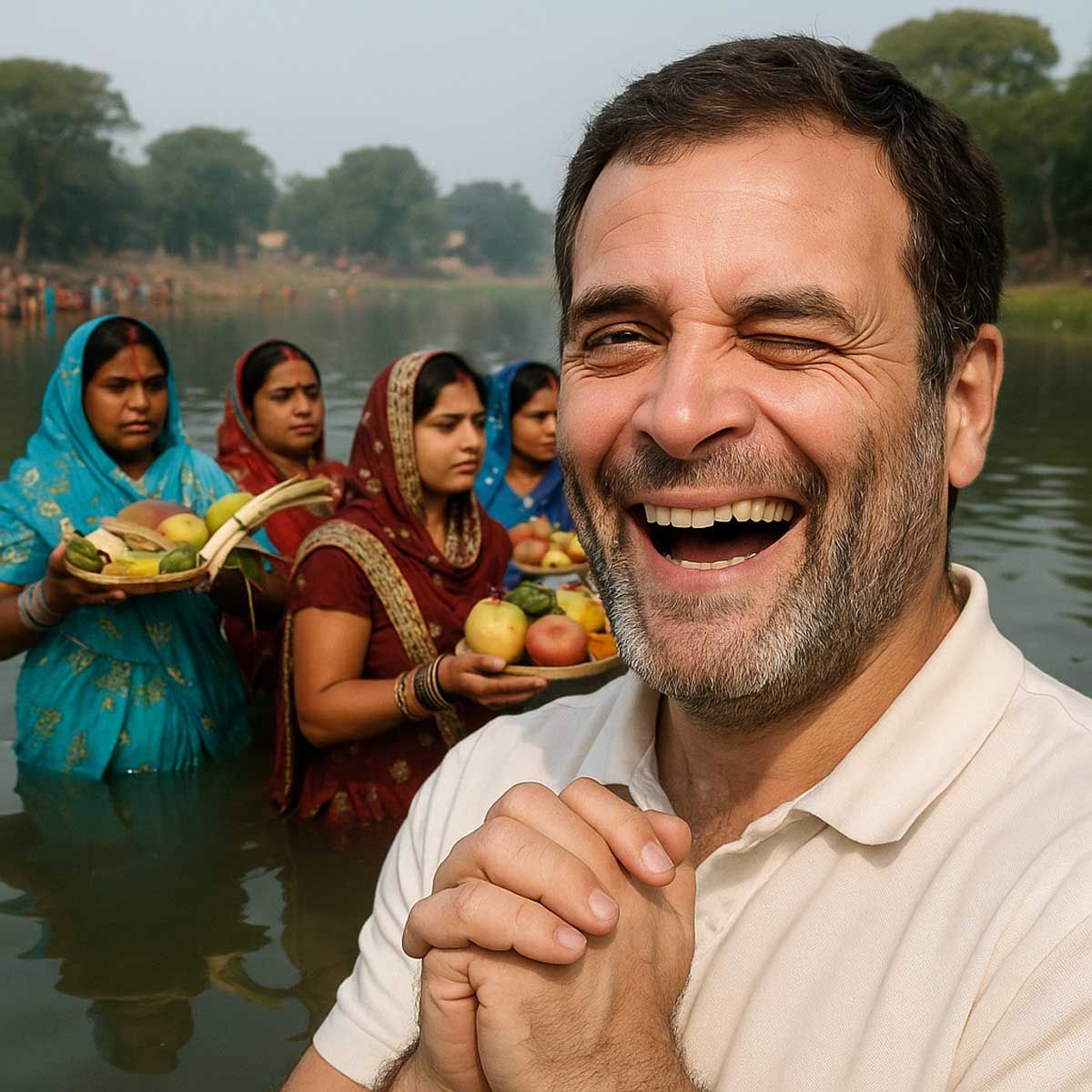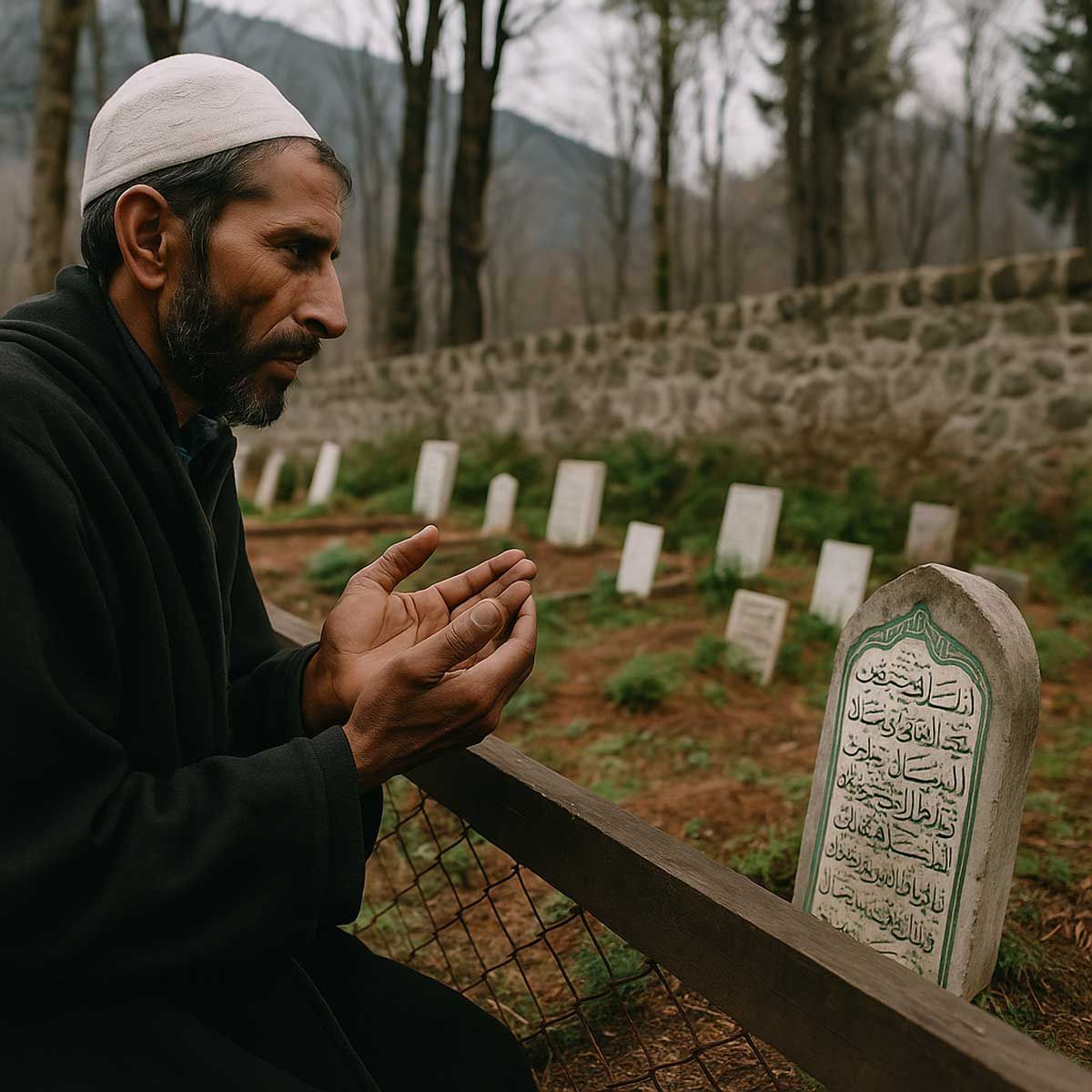More Coverage
Twitter Coverage
Satyaagrah
Written on
Satyaagrah
Written on
Satyaagrah
Written on
Satyaagrah
Written on
Satyaagrah
Written on
JOIN SATYAAGRAH SOCIAL MEDIA
Veteran actor Dilip Kumar passes away at 98
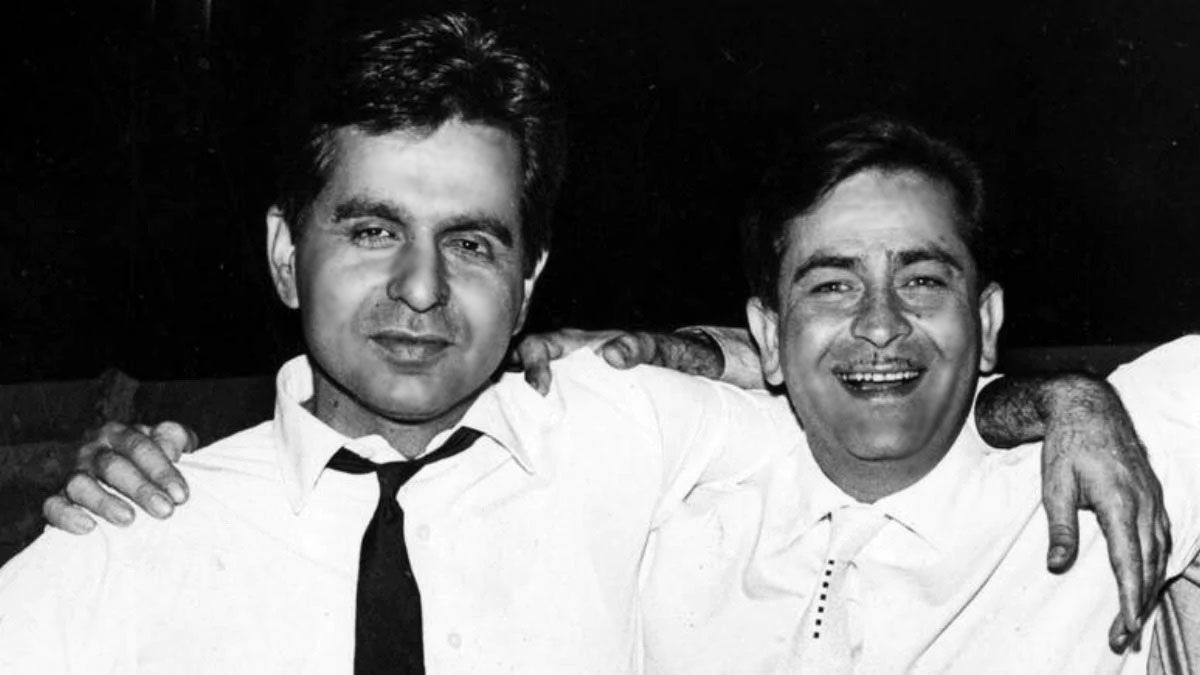
On July 7, veteran actor Mohammed Yusuf Khan fondly known by his screen name Dilip Kumar passes away at Hinduja Hospital in Khar, Mumbai. As per reports, he was admitted to the hospital on June 30 after complaining of breathlessness. Two brothers of the actor Aslam Khan (88) and Ehsan Khan (90) passed away last year due to complications associated with Covid-19.
Dilip Kumar made his debut in the film industry in 1944 with the film Jwar Bhata. He had some of the most iconic films in his kitty, including Kohinoor, Mughal-e-Azam, Devdas, Naya Daur, Ram Aur Shyam, among many others. He was last seen in Qila in 1998. Kumar dedicated five decades of his life to the film industry. He got married to fellow actress Saira Banu in 1966.
“The doyen of Indian film industry Mr. Dilip Kumar breathed his last today at 7.30 AM at Khar Hinduja hospital after a long and protracted illness,” the hospital said in a statement post his demise.
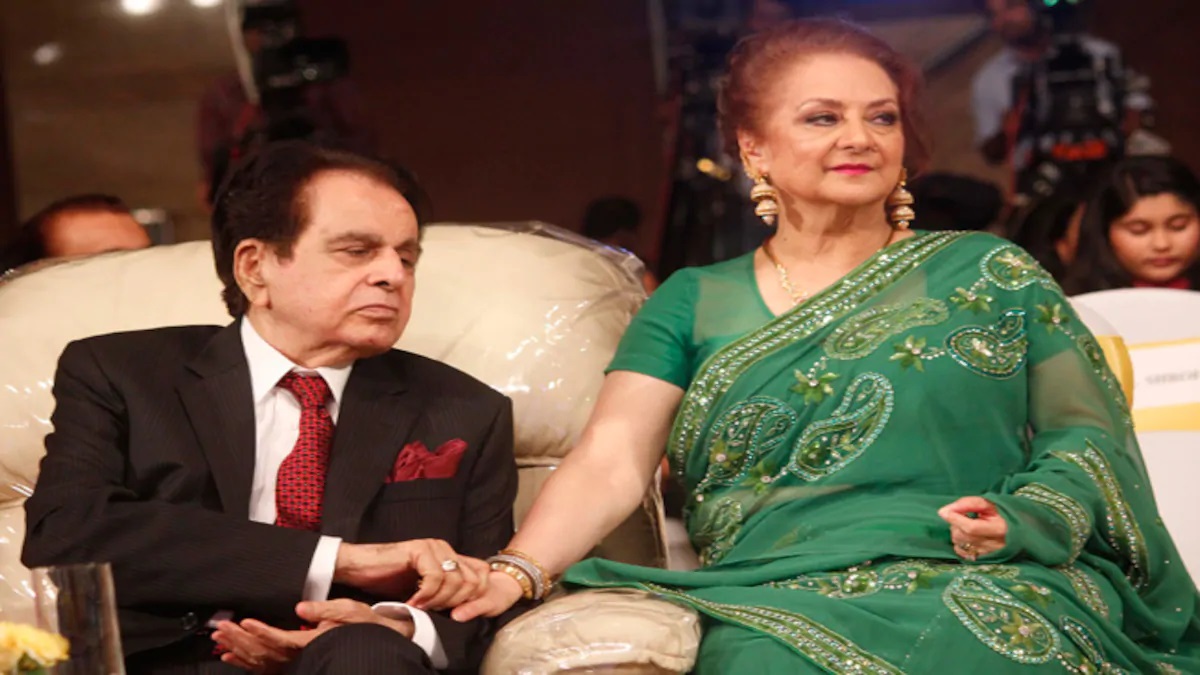 |
Dilip Kumar later referred to as "Tragedy King" and "The First Khan", he had been credited for bringing a distinct form of method acting technique to cinema. Kumar holds the record for most wins for the Filmfare Award for Best Actor and was also the inaugural recipient of the award.
Kumar debuted as an actor in the film Jwar Bhata (1944), produced by Bombay Talkies. In a career spanning over five decades, Kumar worked in over 65 films. Kumar is known for roles in films such as the romantic Andaz (1949), the swashbuckling Aan (1952), the social drama Daag (1952), the dramatic Devdas (1955), the comical Azaad (1955), the epic historical Mughal-e-Azam (1960), the social dacoit crime drama Gunga Jamuna (1961), and the comedy Ram Aur Shyam (1967).
In 1976, Kumar took a five-year break from film performances and returned with a character role in the film Kranti (1981) and continued his career playing leading roles in films such as Shakti (1982), Mashaal (1984), Karma (1986) and Saudagar (1991). His last film was Qila (1998).
|
Kumar had a long relationship with actress Madhubala but never married her. He married actress Saira Bano in 1966. He resided with his wife in Bandra, a suburb of Mumbai in the state of Maharashtra in India.
It was such his aura, that in Bollywood, once cannot become a star if one don’t have a bit of Dilip Kumar in him. From Dharmendra and Amitabh Bachchan down to Aamir Khan, Govinda and Shah Rukh Khan, Kumar’s influence can be felt in every generation of stars who came after him. An ardent admirer, Amitabh used to study Kumar’s performances, especially the one in Gunga Jumna in which Kumar’s character Gunga spoke Awadhi with such fluency that a stunned Bachchan, himself a Awadhi and Bhojpuri speaker from Allahabad, Uttar Pradesh, was forced to conjecture, “It was very difficult for me imagine how someone that did not come from Uttar Pradesh was able to pronounce, enact all the nuances of the Awadha language.” In a blog that he wrote on Kumar’s 89th birthday, Big B said, “His presence his aura and his dedication to film shall be documented as ‘before Dilip Kumar and after Dilip Kumar.’”
A small-town boy, Dharmendra was so inspired by his matinee idol that he decided to leave his village in Punjab and rush to Bombay to become an actor. Years later, he would reflect poetically, “Dilip Kumar is that the brightest star whose shine I stole to light my desires.”
|
The Tragedy King may have unwittingly become a paragon and an institution in a career that began with Jwar Bhata in 1944 but the surprising fact is that he never wanted to become an actor in the first place. He has called himself an “accidental” actor. Born as Yusuf Khan in Peshawar’s Qissa Khawana Bazaar (the Kapoor clan also hailed from there and so does Shah Rukh Khan’s family). Yusuf was educated in Nashik but ultimately the family relocated to Bombay. Kumar’s father, called “Aghaji” at home, had no love lost for the “louche” film world. When he got to know that his friend Dewan Basheshwarnath Kapoor’s son Prithviraj (Raj Kapoor’s father) was acting in films, he is believed to have chided Basheshwarnath, “Respectable families like us don’t send our kids to cinema.” Imagine the young Yusuf’s trauma when Devika Rani of Bombay Talkies offered him the job of an actor at a monthly salary that was way more than what Raj Kapoor was earning. The studio had come up with screen names for the upcoming star. These included Yusuf Khan, Basudev and Dilip Kumar. The young man finally read his name in the film’s advertisement in a newspaper. He had been christened Dilip Kumar. A popular story goes that Basheshwarnath Kapoor tried to pacify Aghaji by showing him a poster of Jugnu (1947). “Don’t be upset,” he said. “Your son has adopted another name to keep the family honour intact.”
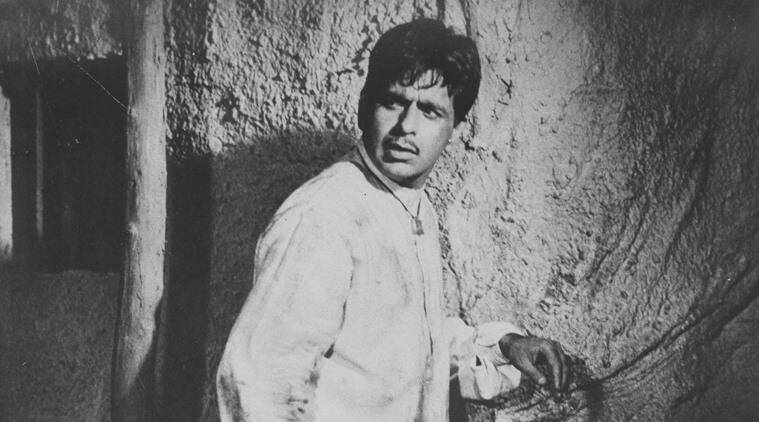 Dilip Kumar in Gunga Jumna. (Express archive photo) |
And so, Yusuf Khan became Dilip Kumar. Jugnu was his first major hit. Soon followed Shaheed, Mela and Andaz, promptly turning him into a superstar and box-office draw. For a true appreciation of his work, most critics and viewers turn to classics like Devdas, Yahudi, Naya Daur and Aan. During the launch of Kumar’s autobiography The Substance and the Shadow, Javed Akhtar said, “With time, we are realising how right we were right from the beginning.
We are understanding the nuances of his work. His greatest is still dawning upon us.” That is true of Mughal-E-Azam, which is often seen as a Madhubala-Prithviraj Kapoor vehicle. But watch it again and perhaps, you will realise how spectacularly and consciously understated Kumar, as Prince Salim, is. While the rest of Bollywood of the time was hamming and screaming, here was a man who kept it subtle. Because of Kumar’s understated elegance that Madhubala’s demure courtesan and Prithviraj Kapoor’s bombastic emperor find their perfect balance.
Kumar’s flair for tragic roles in which he suffered for the cause of the character sent him into depression and to seek psychiatric help. He was advised to cut down on fully immersing himself into his roles. The gloom had to be lifted. For the sake of his health, he started doing comedies. Here, too, he excelled, revealing a comic side that mainstream actors even today are discovering new facets.
Lighter roles in films like Shabnam, Azaad, Kohinoor and Ram Aur Shyam brought the house down and proved that he could be just as versatile in comedy as serious and meaningful roles. Writers Salim-Javed, who all their life desired to work with Kumar, finally gave the thespian a parting shot in Shakti (1982).
At a film award ceremony in 2001, Shah Rukh Khan asked Kumar about the quality that makes his films so enduring. “No actor can be bigger than the substance which he portrays,” Kumar replied. Then, he held Khan’s hand.
 Dilip Kumar in Karma. (Express archive photo) |
“For any good or an enduring performance, Shah Rukh,” the thespian went on, “you have to have a good story, good character equations, sound conflict, and enough opportunity for you to then wade through it. Because then you have substance to deal with, not just shadows.” It’s tempting to wonder if the title of superstar’s autobiography came from there. Meanwhile, those are words of wisdom that many future stars can swear by.
Erudite, a man of culture, tehzeeb and poetry and ultimate sophistication, Dilip Kumar was the last of the mogul with old school values.
 Support Us
Support Us
Satyagraha was born from the heart of our land, with an undying aim to unveil the true essence of Bharat. It seeks to illuminate the hidden tales of our valiant freedom fighters and the rich chronicles that haven't yet sung their complete melody in the mainstream.
While platforms like NDTV and 'The Wire' effortlessly garner funds under the banner of safeguarding democracy, we at Satyagraha walk a different path. Our strength and resonance come from you. In this journey to weave a stronger Bharat, every little contribution amplifies our voice. Let's come together, contribute as you can, and champion the true spirit of our nation.
 |  |  |
| ICICI Bank of Satyaagrah | Razorpay Bank of Satyaagrah | PayPal Bank of Satyaagrah - For International Payments |
If all above doesn't work, then try the LINK below:
Please share the article on other platforms
DISCLAIMER: The author is solely responsible for the views expressed in this article. The author carries the responsibility for citing and/or licensing of images utilized within the text. The website also frequently uses non-commercial images for representational purposes only in line with the article. We are not responsible for the authenticity of such images. If some images have a copyright issue, we request the person/entity to contact us at This email address is being protected from spambots. You need JavaScript enabled to view it. and we will take the necessary actions to resolve the issue.
Related Articles
- Rhea Chakraborty tells NCB Sara Ali Khan offered her marijuana and vodka, SSR’s family used to have drugs with him
- Scripted praise, planned fights: Reports say controversies in Indian Idol are faked to boost TRP after Kishore Kumar episode sparks row
- From she is bipolar, had staged her attack to Karan was used to hitting her: Here’s what we know so far about the Karan Mehra-Nisha Rawal case
- Thalapathy Vijay Beats Rajinikanth at Tamil Nadu Box Office With Master’s Fantastic Performance
- NCPCR pulls up Maharashtra govt for not filing FIR against Netflix series Bombay Begums makers, children were shown snorting drugs in the show
- Srinagar: Top LeT commander, 1 Pakistani terrorist killed in encounter, AK-47s recovered
- UP mass conversion: How Darsh Saxena, Rajeshwari and Priyanka became Mohd Rehaan Ansari, Razia and Fatima, more details emerge
- India successfully carried out the test firing of a new missile of the Agni series known as Agni-Prime
- Kejriwal Govt Inflated Delhi's Oxygen Demand By Four Times During Second Wave Peak: SC Oxygen Audit Team
- Giant hypocrite: Activist confronts Twitter CEO over censorship, asks why he ‘hates Jews and Conservatives’
- Haryana: Man burnt alive to make him ‘martyr’ against farm laws, villagers demand security from ‘farmers’ at Tikri border
- Remembering Sushant Singh Rajput: An actor with a difference
- ‘Don’t use IMA to propagate any religion’: Read what the Delhi court said slamming IMA President John Rose Jayalal
- Government of India gives Twitter "one last notice" as "gesture of goodwill" to comply with IT Rules, 2021
- Twitter says it removed verified badge from Vice President Venkaiah Naidu’s account due to ‘inactivity’: Here is why their argument is flawed
















